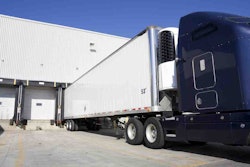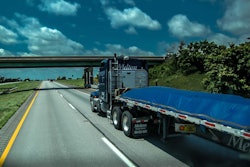The Federal Reserve has reported that tariffs and a shortage of truckers and other skilled workers concern manufacturers in a growing economy.
The Fed’s latest report indicates modest to moderate economic expansion throughout most of the nation, which it divides into 12 districts. Its latest summary of economic conditions, referred to as the Beige Book, is based on interviews conducted May 21-July 9 with business contacts and other sources.
Half the districts cited trucking capacity issues, which they attributed to the driver shortage. “Many districts reported higher prices and supply disruptions that they attributed to the new trade policies,” it stated. “All districts reported that labor markets were tight and many said that the inability to find workers constrained growth.”
All sectors reported consumer spending hikes and shortages of a wide range of occupations, which restrained growth for many. U.S. employment, wages and prices saw modest-to-moderate increases, with some regions showing upticks in inflation. The prices of freight, fuel, metals and other key inputs continued rising. Some districts expect pricing pressures to intensify, while others expect modest to moderate growth.
Transportation contacts in Atlanta’s district expected increased activity during the last half of the year. Transportation, steel and other non-labor input costs grew, but companies reported limited ability to pass on the hikes. Its ports saw significant year-over-year increases in containerized shipments, bulk and breakbulk cargoes, as well as automobile and equipment freight. Demand for freight services was high because of economic improvements and increased e-commerce shipments.
Freight volume increased in Cleveland and St. Louis districts, which included a rise in rail transportation because of trucking capacity constraints.
In the St. Louis sector, shipping experienced robust price increases because of higher fuel prices and driver shortages, with one trucking company offering the largest one-time pay increase in its history. By contrast, China’s proposed tariffs resulted in agricultural commodity prices dropping. These lower prices were passed on to food retailers, who said the decrease more than offset increased freight costs.
The driver shortage limited trucking activity in San Francisco region and left Richmond district trucking companies unable to meet record demand while allowing rate increases.










